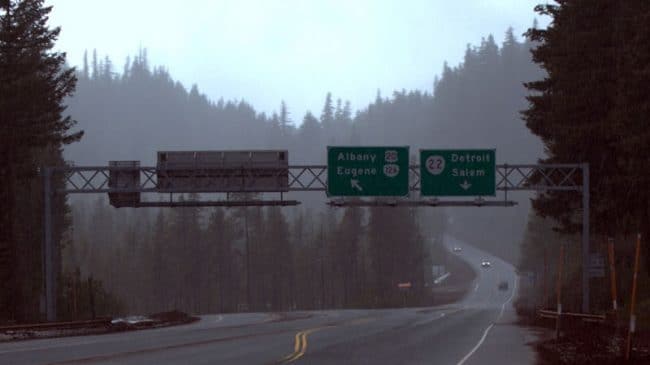This month California launched a new “Road Charge Pilot Program” to test replacing the gas tax that drivers pay at the pump with a fee based on the number of miles they drive.
It’s not the first transportation funding experiment of its kind. Other states including Oregon, Washington and Minnesota have already conducted similar tests in recent years, but it is important. Cars – and even trucks and SUVs – are getting more fuel efficient with each passing year. As fuel efficiency goes up, we drive as much or more while using less gas and thus paying less in gas taxes.
But there is still more wear and tear on roads, and inflation, labor, land and other rising costs make roads increasingly expensive to maintain and build.
Transportation should be funded through user fees – the people who pay to use roads should be the ones to pay for them. And the fees charged to use roads should go into dedicated accounts. Gas taxes, for example, should be spent on roads and shouldn’t be treated as an income source that the state Legislature can divert to other purposes. As the gas tax becomes less viable as a user fee, we need a new user fee to replace it.
The Road Charge Pilot Program is designed to test mileage fees, which would replace gas taxes. The experiment already has over 5,000 volunteers from all over the state so it can measure how the system might work in all kinds of conditions. To implement a new reliable revenue stream for transportation, it’s crucial that the state get this project right.
First, California needs to measure how to replace the gas tax with a mileage charge, not create a fancy way to tax everyone twice. The Road Usage Charge Program is explicitly mandated to replace the gas tax with a per-mile charge, but people are naturally suspicious it will wind up being a tax hike or open the door to double taxation through a gas tax and mileage fee.
Second, the system must protect drivers’ privacy. A per-mile charge cannot require that people be tracked by a state agency wherever they go. Nor can it be a mandate that the government put a “black box” in every car. The fee system has to provide individuals with choices about the technology they use. One driver may want GPS to track everything, while another driver may want to go to the DMV for annual odometer readings. Choice is key.
The system must also give drivers control over their data. Ideally the state will use private parties, separate from the government, that provide the technology and collect fees. Oregon has done a great job of this in its mileage charge system and California, so far, is adopting similar approaches.
Third, the experiment needs to explore how fair a per-mile charge is relative to gas taxes. We don’t want a new system that shifts the burden of paying for the roads away from the people who use them. The good news is that previous mileage fee experiments indicate they are more fair than gas taxes. But it’s important that rural and urban drivers, rich and poor, all believe the system is fair.
Fourth, the mileage fee can’t spawn a new state collection bureaucracy or be overly expensive to collect. The gas tax has many failings, but one positive is that it is very inexpensive to collect. Mileage fee experiments thus far have been more expensive in this regard, so the state needs to explore ways to reduce collection costs, especially as the system scales up in the nation’s most populous state.
California’s new experiment is off to a good start. A well-functioning road system is essential to our lives, job prospects, state economy and mobility, so developing and implementing a sustainable method of funding the transportation system would be a major boost to the state.
Adrian Moore is vice president of policy at Reason Foundation.

